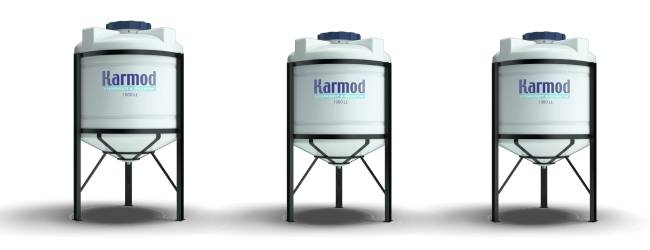
In recent years, storage tanks have become quite popular. They offer numerous advantages to users and, with their reasonable prices, can eventually pay for themselves. When you purchase a water tank or install a rainwater harvesting system, over time, the positive impact on your water bill will pay for itself.
Apart from individual use, they are also widely used in the industrial manufacturing industry. Tanks are manufactured from various materials, including polyester, polyethylene, and stainless steel. Looking at storage products in general, there is a variety of sizes available, ranging from 50 liters to 100.000 liters. Furthermore, all tanks are produced in different designs. With so many criteria to consider, choosing the most suitable tank can be quite challenging. To help you with this, we have prepared a guide for you. By following the steps below, you can select the most suitable tank:
1) Analyze Your Needs
Regardless of what you intend to store in a tank, it's crucial to analyze your needs thoroughly before purchasing one. Needs analysis is often overlooked, as people tend to think that mentally assessing their needs is sufficient. Putting your needs on paper makes them more tangible. Afterward, you can more clearly identify any shortcomings or excesses in your requirements. Then, you can start searching for a tank size based on your needs.
2) Conduct a Production Volume Analysis
For tanks intended for industrial use, conducting an analysis of production volume is one of the most significant steps in determining the tank's size. This is because production volumes in industries can vary from time to time. By determining the production volume based on a specific period, an average value can be obtained. Typically, in these areas, more than one tank is purchased, so a tank size is chosen based on the average value. For example, if the need is for 10 tanks but the required volume averages 5.000 liters, it is recommended to purchase 15 tanks. This is because production volume may increase over time. The calculation provided is for the convenience of larger businesses in easily estimating their needs.
3) Analyze the Content to Be Stored
One of the most crucial steps before purchasing a tank is to analyze the content you intend to store, especially if it involves a chemical mixture or chemical substances. Chemical substances can react with certain raw materials or generate heat, acid, or cold. At this stage, you should be well-versed in all aspects of the content you are dealing with. However, issues can arise when it comes to tanks if you lack extensive knowledge about tanks. In this regard, you can contact the manufacturer to ask any questions or address any concerns.
Which Water Tank Is Best for Chemical Storage?
When it comes to storing food items, it is recommended to use polyethylene water tank models. However, when dealing with chemicals, there can be some variables to consider. Polyester tanks are known for their chemical resistance. Therefore, when it comes to chemical storage, polyester tanks are recommended. To enhance the chemical resistance of a polyester tank, isophthalic and epoxy-based vinyl ester resin is used. If chemical resistance is not required, the tank is produced using only polyester resin and the primary material obtained from fiberglass. Polyester tanks are also widely used for the transportation of contents due to their ease of handling.
In addition, stainless steel tanks are highly resistant to chemicals. These tanks are also commonly used for storing chemicals that release heat. This is because stainless steel tanks have a high working temperature value due to their construction material. The working temperature of stainless steel tanks is around 80 degrees Celsius, which is very close to the boiling point of water, which is 100 degrees Celsius. Stainless steel tanks are also widely used for storing pharmaceuticals. The main reason for this is that stainless steel can cool down quickly and ensure the contents are stored in a sterile environment. If you are looking for tanks for small-scale projects rather than industrial purposes, you can consider polyethylene tanks. Rainwater harvesting projects for small projects can be a good example.
In conclusion, in this article, we have detailed the types of tanks that can be used for chemical storage in businesses and briefly discussed what to consider before purchasing a tank. If you would like to have one of these advantageous tanks, you can contact our customer representatives.


 EN
EN
 DE
DE
 FR
FR
 IT
IT
 ES
ES
 PT
PT
 RU
RU
 AR
AR
 BG
BG
 SR
SR
 GR
GR
 SQ
SQ
 RO
RO
 PL
PL
 HU
HU
 CZ
CZ
 HR
HR
 AZ
AZ
 GE
GE
 AM
AM
 IL
IL